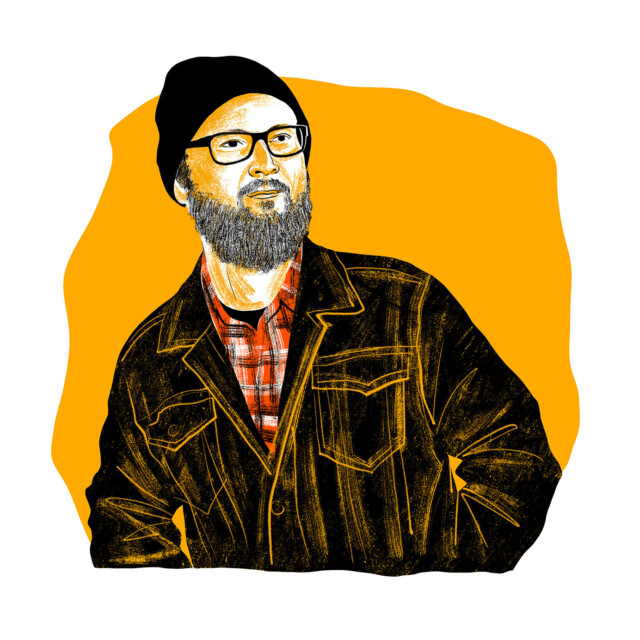This feature is part of our 2023 Next Wave Awards.
Nathan Kendall always knew he wanted to be a winemaker. Growing up in Dundee, N.Y., he was surrounded by the vineyards and tasting rooms of the region’s Finger Lakes. Kendall’s parents started their own winery, Hickory Hollow, in 2002 and he started pouring wine there when he was 18. He went on to earn a degree in business as well as study viticulture and enology, and spent years traveling between hemispheres learning the craft — working harvest in New Zealand, Germany, Australia, Oregon, and California. Through his experience working in different wineries, Kendall developed a unique vision for the wines he wanted to make when he returned home to New York. In 2011, he started his own label, Nathan K., and has been making captivating wines from the Empire State ever since.
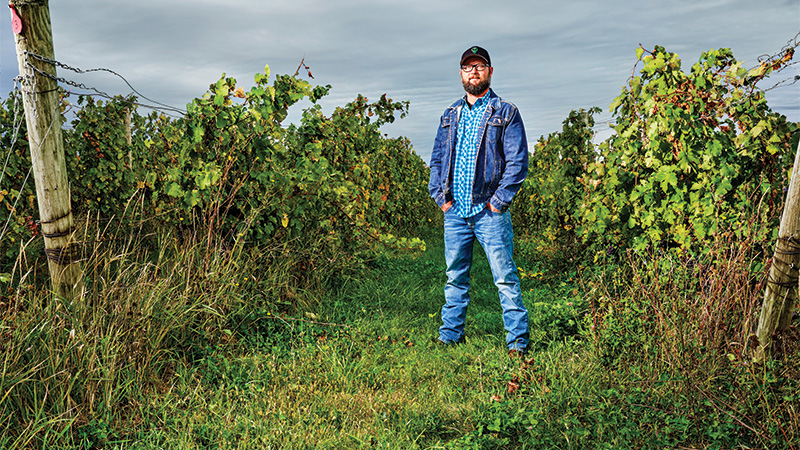
At the time Kendall started his brand, there was more skepticism than excitement around Finger Lakes wines. Some acknowledged the region’s Riesling, while others whispered rumors that the area could never make serious reds. Kendall was determined to take what he learned working around the world and make wines that could capture the attention of the industry. He focused on texturally driven whites and complex, whole-cluster reds, implementing techniques that were new to the area.
“Back in 2011, people weren’t lees aging or doing barrel fermentation for Riesling, and only one other winery was using whole-cluster fermentation for reds,” Kendall says. Working with these techniques, as well as using spontaneous fermentation, resulted in dynamic and expressive wines that made many reconsider the Finger Lakes as a worthy wine region with global recognition. Today, many of his wines are now featured on top restaurant lists around the world, including Blue Hill at Stone Barns in New York and The Connaught in London.
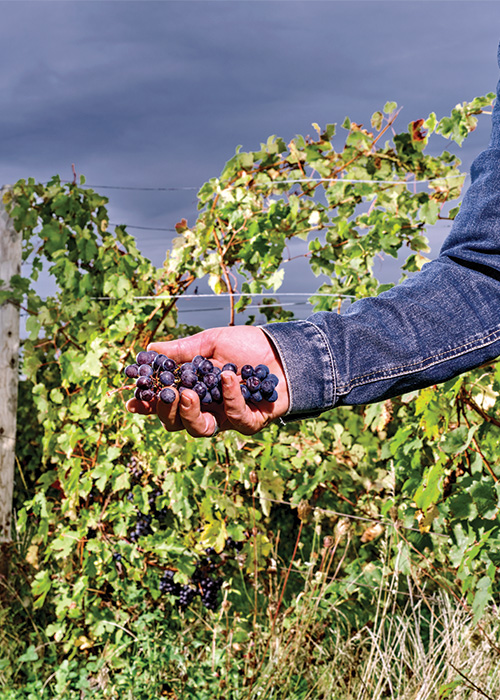
In addition to his Nathan K. label, Kendall further embraced New York’s roots with a brand he created in collaboration with renowned French sommelier Pascaline Lepeltier in 2014. The two set out to produce a hyper-local wine, made with organic grapes and no added sulfites, which was a rarity in the region. The only certified organic vineyard they could find was farmed to very old hybrids at the time, so they decided to go back to what the area was founded on. The label, called Chëpìka (meaning root in the Lenape language of the Native American Delaware tribe), showcases elegant sparkling and still wines made from the hybrid grapes Delaware and Catawba.
While the presence of hybrid grapes was what caused so many people to look down on the region previously, Chëpìka was one of the first wines to celebrate the history of the Finger Lakes, and really champion the abandoned varieties that date back over 200 years.
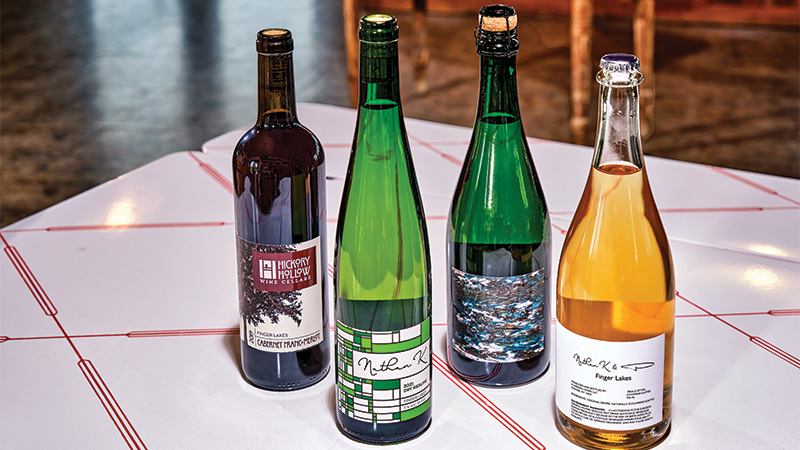
“At the time you couldn’t find dry, serious wines made in this style from these grapes,” Kendall says. “I think we inspired a lot of people to embrace these varieties.” Now, Kendall believes that people are generally more open to trying these more eccentric wines. “The younger generation of drinkers doesn’t necessarily think of one species of grapes as better — they are really broadening the horizons of wine.” And Kendall has a lot of hope for what that can mean for the Finger Lakes.
Even as the area continues to face severe weather challenges, he plans to continue to adapt to the unpredictable conditions to make great wine, and has placed an emphasis on the importance of sparkling. “The writing has been on the wall for a while,” Kendall says regarding climate change. “The best answer is more sparkling wine. You harvest those grapes early, and don’t have to let them hang to get ripeness. We’ve ramped up sparkling wine production so we can make them consistently, even in the most erratic vintages.”
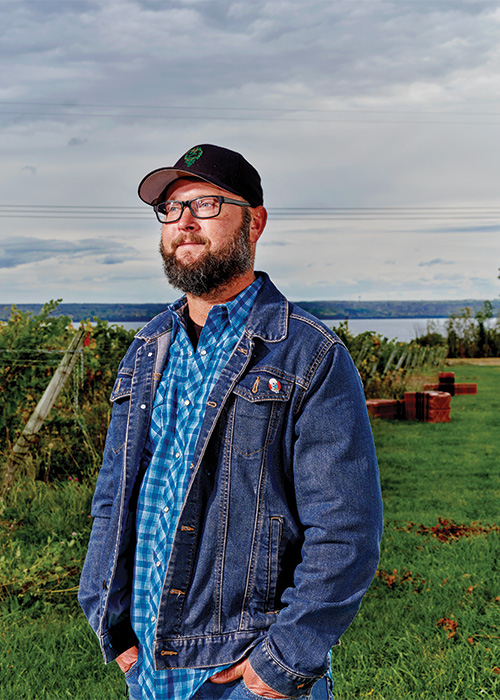
That, and so much more, is what the future holds for Kendall. Whether it be through his expertly crafted wines for the Nathan K. line and Hickory Hollow winery, or experimental wines with Chëpìka, Kendall has pushed the boundaries of New York wine, and will continue to do so as the wine world continues to evolve.
